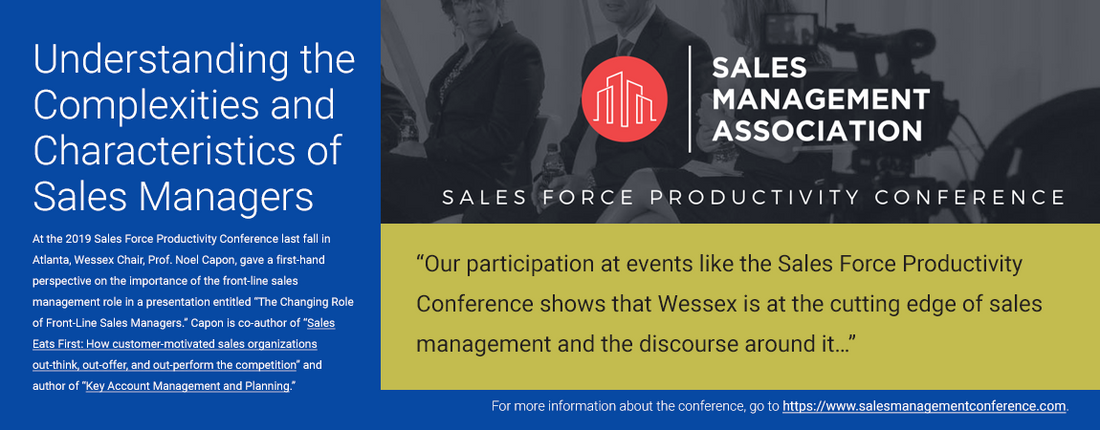
Understanding the Complexities and Characteristics of Sales Managers
Front-line sales managers (FLSMs) are critical to a sales organization’s success. Yet, in many firms today, the FLSM role is inadequately-resourced, poorly-supported, even under-appreciated.
Coping with these issues, as well as understanding the characteristics and complexities of the FLSM role, were among the many topics and goals explored at the 2019 Sales Force Productivity Conference last fall in Atlanta. In a presentation entitled “The Changing Role of Front-Line Sales Managers,” Wessex Press Chair, Prof. Noel Capon, gave a first-hand perspective on the importance of the front-line sales management role.
Professor Capon R.C. Kopf Professor of International Marketing at Columbia Business School. compared the importance of this role to that of a Field General executing the firm’s sales strategy. He also presented the sixfold FLSM Acumen Framework as a means of ensuring that firms appoint the best candidates to these Field General roles and that they are coached to improve their performance.
Capon is the co-author of Sales Eats First: How customer-motivated sales organizations out-think, out-offer, and out-perform the competition. He also wrote Key Account Management and Planning.
A follow-up panel discussion further explored the roles FLSMs should play, the important attributes of today’s FLSMs, and how the role is poised to change.
Some 200 sales and management professionals attended the conference. During Exhibition and Networking hours, conference attendees were able to connect with the sponsors, who set up booths with information about their companies.
“Our participation at events like the Sales Force ProductivityConference shows that Wessex Press is at the cutting edge of sales management and the discourse around it. We’re bringing new intellectual content to both students and executives.”
